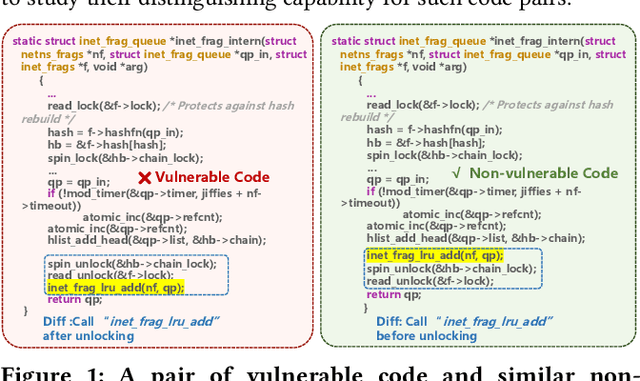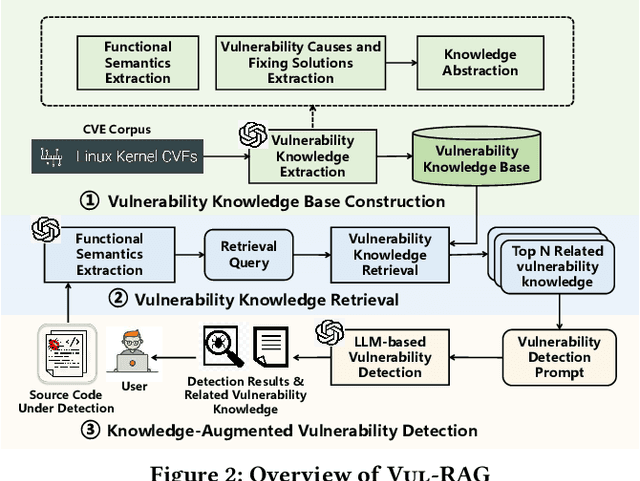Vul-RAG: Enhancing LLM-based Vulnerability Detection via Knowledge-level RAG
Paper and Code
Jun 17, 2024



Vulnerability detection is essential for software quality assurance. In recent years, deep learning models (especially large language models) have shown promise in vulnerability detection. In this work, we propose a novel LLM-based vulnerability detection technique Vul-RAG, which leverages knowledge-level retrieval-augmented generation (RAG) framework to detect vulnerability for the given code in three phases. First, Vul-RAG constructs a vulnerability knowledge base by extracting multi-dimension knowledge via LLMs from existing CVE instances; second, for a given code snippet, Vul-RAG} retrieves the relevant vulnerability knowledge from the constructed knowledge base based on functional semantics; third, Vul-RAG leverages LLMs to check the vulnerability of the given code snippet by reasoning the presence of vulnerability causes and fixing solutions of the retrieved vulnerability knowledge. Our evaluation of Vul-RAG on our constructed benchmark PairVul shows that Vul-RAG substantially outperforms all baselines by 12.96\%/110\% relative improvement in accuracy/pairwise-accuracy. In addition, our user study shows that the vulnerability knowledge generated by Vul-RAG can serve as high-quality explanations which can improve the manual detection accuracy from 0.60 to 0.77.
 Add to Chrome
Add to Chrome Add to Firefox
Add to Firefox Add to Edge
Add to Edge